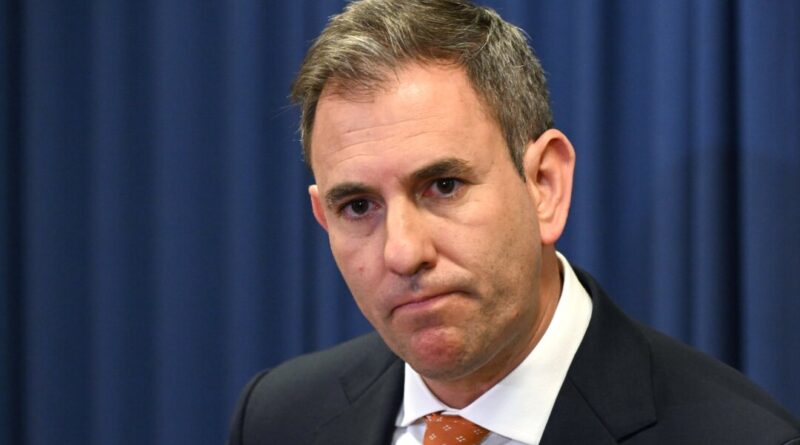‘A Possibility’: Treasurer Concedes Labor Could Lose Election After One Term
Australians are due to go to the polls in the first half of next year.
Australian Labor Treasurer Jim Chalmers has admitted there’s a chance his party could lose the next election.
Labor is due to go to the polls in the first few months of next year, with recent polls showing the government trailing the Coalition 49 to 51.
Another poll from RedBridge Group and Accent Research is also the first to predict Opposition Leader Peter Dutton could win office.
In an ABC interview on Dec. 5, Chalmers was asked whether there was a “real risk” his government could lose after one term—a historic rarity.
The treasurer confirmed they would “go to the people in the first half of next year” when they can vote for either a government helping with the cost of living, or the “economic insanity of the Coalition.”
Chalmers also provided a clue on the delivery of the next federal budget, indicating it could be in March 2024.
“We’ve got to get the mid‑year budget update out the door this month—and then we’re working on, more or less simultaneously, a March Budget at the same time,” he said.
“That’s the plan and we’ve been meeting the Expenditure Review Committee around the clock and doing all kinds of engagement with colleagues to try to put two things together more or less at once, the mid‑year budget update, and then before long after that, the [main] Budget.”
Families Going Backwards: Dutton
Opposition Leader Peter Dutton has taken aim over the weak economic growth figures released on Dec. 4.
“Obviously there’s anemic growth in the economy at the moment.
“Inflation remains high and therefore interest rates will stay higher for longer. Why? Well, the Reserve Bank governor’s made it very clear the government continues to spend money in a wasteful way and that’s holding up inflation for longer, and that’s why interest rates will stay higher for longer, even though they’ve already gone down in the United States, in New Zealand, [or] in Canada.”
The figures also showed GDP per capita, the average value a resident adds to the economy, fell by 0.3 percent for the seventh consecutive quarter.
“We have now been in a household recession for seven quarters. It was a record up to six quarters. It’s still a record, and of course, that means more pain for Australians, more pain for Australian businesses, more pain for Australian households.”





